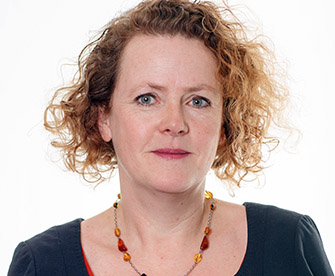
Emily Rae, Finance Partner at Fletcher Priest Architects
Finance Directors can play a key role in growing an SME says Emily Rae, Finance Partner at Fletcher Priest Architects, an architecture business in London which employs 120 people.
- As the Finance Director of an entrepreneurial SME, what does your job entail?
As well as the Finance role, I also have responsibility for the other support functions in the business, such as HR, legal and office administration. It’s very much an operational role and a broad role, and I think that is true of most finance directors in SMEs. That is where the value lies, because you are picking up functions across the business that the other directors were managing in addition to their main role and making it a focus and making it work. You have got to get under the skin of how the business works and what makes it tick so that you can get involved across the board.
- What are the ideal characteristics of a Finance Director in an entrepreneurial business?
A finance director in this environment needs to be measured, and needs to be firm but fair. It’s likely that you will be introducing or enhancing a new framework and new policies to the business that were previously handled on an ad hoc basis and it is very important that you are equal handed and consistent in how you introduce and operate these measures.
When you work in an entrepreneurial environment, new ideas, new challenges and new initiatives will come up on a regular basis. As the Finance Director you are often required to be the voice of reason and the person who challenges the practicality, desirability and consequences of such proposals.
- What role does a Finance Director play in a growing business?
As the Finance partner I am one of the few people who is uniquely able to have a broad overview of the business. The role requires me to be involved at some level with every aspect of the business and this overview allows me to understand the different needs, priorities and motivations across the different areas of the business and to balance these and when needed to broker a solution if there are conflicting requirements.
When a business is looking to expand it’s vital that the finance director be involved in analysing, questioning and researching the options be it opening a new office, diversifying the business offering or making strategic senior hires.
I am also involved in the wider industry. I am Chairman of the Architects Financial Management Group, an industry group which meets every quarter to discuss common issues that we, as finance and operational heads of architectural businesses, are encountering. It’s an incredibly useful source of support and information and on a confidential basis can be fed back into the business to help inform how we manage the business. For instance, personal indemnity insurance is a huge issue for the industry at the moment and something we have discussed many times within the group.
- How would you describe the ideal relationship between the CFO and the CEO of the business?
The relationship between the CFO and CEO is key. The most important thing is for there to be mutual trust and respect. You have to be able to be completely open and honest with one another and for each to be able to constructively challenge the other.
- How can smaller businesses access the benefits of a CFO?
A small business can still benefit from working with a finance director and doesn’t necessarily have to commit to a full time or permanent role. There is a halfway house option because there are lots of very experienced people who do this on a consultancy basis. I used to be a consultant myself and worked for several very small companies a few days a month or as they needed. For a smaller business, I think this is quite a good way of putting your toe in the water and seeing what you could get out of it.
A good finance professional can introduce some rigour around reporting on and managing your financial performance which can help owners to identify how the business is developing and where the strengths and weaknesses lie. As most finance professionals from an SME background are “all rounders” you can also benefit from their advice on other aspects of the business (HR, insurance, legal, property issues etc) which comes back to the role being very much a broad operational one and not just a strictly financial one.


